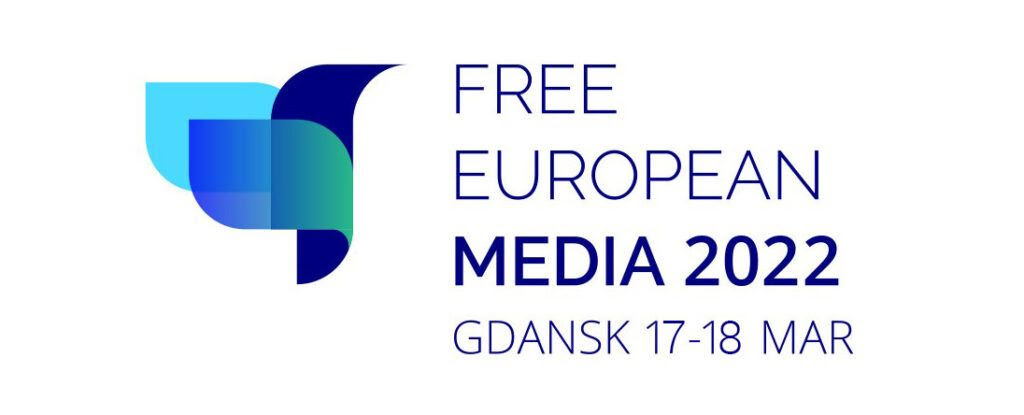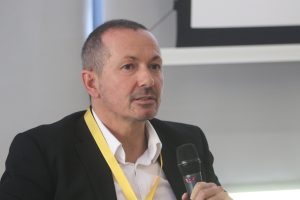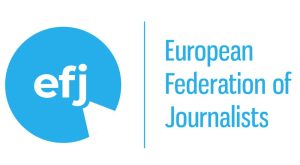Participants, including Vera Jourova, European Commission Vice-President, Patrick Penninck, Head of Information Society Department of the Council of Europe, presented new recommendations to support the development of free media.
Thursday evening’s event on the war in Ukraine brought together Ukrainian, Russian, Belarusian and Moldovan journalists, including Andrei Bastunets, President of the Belarusian Association of Journalists (BAJ) and Mykola Semena, delegate of the National Union of Journalists of Ukraine (NUJU).
Here is the overall resolution adopted at the end of the conference:
The appalling war against Ukraine is not only destroying the life of millions of people, but has also weaponized news and information with propaganda, disinformation, lies and censorship.
- Four journalists have been killed in Ukraine while reporting from the war;
- Dozens of journalists have been wounded, captured or have disappeared;
- Ukrainian journalists face mortal danger on a daily basis;
- A pluralistic and vibrant media landscape in Ukraine is threatened with extinction;
- Independent Russian journalists cannot anymore do their job without risk to be punished or jailed;
- Belarusian journalists can only work in exile;
Journalists and media in Moldova and Georgia are under pressure and in a vulnerable situation.
The truth is the first victim in a war and is currently threatened by disinformation and censorship.
Ukraine is the victim of the armed invasion, but we are all victims of the information war. Democracies relies on free information, free journalism, and free media.
Independent journalists across borders share common values. 150 journalists from more than 25 countries, including Ukraine, Belarus, and Russia, gathered at The Gdansk conference “Free European Media 2022”, express their support of press freedom, free from restrictions, censorship, punishment and imprisonment.
We strongly urge all European governments to respect, protect and support independent journalism across borders, including in the countries of war and conflict, and call for actions:
- to enable Ukrainian journalists to continue to do their work under the necessary safety conditions;
- to maintain and strengthen the assistance to Belarusian journalists;
- to support independent journalists in Russia through fellowships and professional training at European educational institutions;
- to provide emergency or humanitarian visas to threatened Russian and Belarusian journalists and their relatives;
- to initiate calls on Ukrainian authorities to order Ukrainian banks to unblock accounts of all Belarusian journalists;
- to foster professional cooperation among journalists in the region.
This also requires support across Europe for media viability, media literacy, self-regulation, pluralism, and professionalism to let free media and independent journalism flourish to fight disinformation and propaganda.
The conference has been organised by Free Europan Media and the European Federation of Journalists (EFJ) in cooperation with the European Commission (EC), the Council of Europe (CoE), the European Centre for Press and Media Freedom (ECPMF), the Nordic Council of Ministers (NMR), the Nordic Journalist Centre (NJC), Pomorskie Voivodeship, ESC – European Solidarity Centre, and the City of Gdansk.




